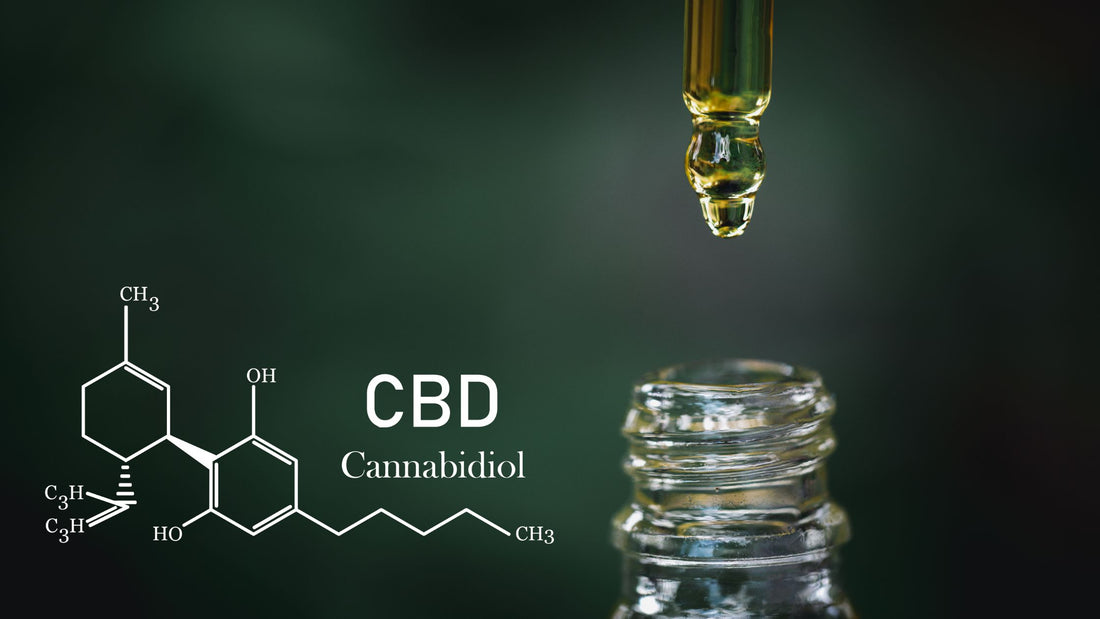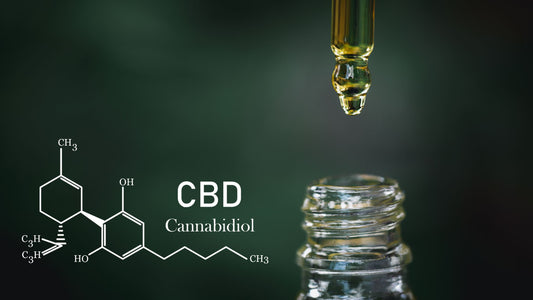
Health Benefits of CBD: A Comprehensive Guide
CBD (cannabidiol) has been widely studied and praised for its potential health benefits across various conditions in humans. Derived from the hemp plant, CBD is a non-psychoactive compound, meaning it doesn’t produce the “high” associated with THC (tetrahydrocannabinol). Below is a detailed and expansive list of the health benefits of CBD, backed by research and anecdotal evidence:

Pain Relief
- Chronic Pain: CBD interacts with the endocannabinoid system (ECS) to reduce inflammation and modulate pain, making it effective for chronic pain conditions such as fibromyalgia and neuropathic pain.
- Arthritis: Studies have shown that CBD can reduce joint pain and inflammation in arthritis patients, improving mobility and quality of life.
- Migraine Relief: CBD may reduce the frequency and severity of migraines by affecting neurotransmitter release and reducing inflammation.
Anxiety and Stress Reduction
- Generalized Anxiety Disorder (GAD): CBD has been shown to reduce anxiety in people with GAD by interacting with serotonin receptors in the brain.
- Social Anxiety: Studies suggest that CBD can help reduce anxiety in social situations, improving performance and comfort.
- Post-Traumatic Stress Disorder (PTSD): CBD can reduce the symptoms of PTSD, including nightmares, anxiety, and hypervigilance, by modulating the ECS and reducing stress response.
- Panic Disorders: CBD’s calming effects can help manage panic attacks and reduce the severity of panic disorders.
Sleep Improvement
- Insomnia: CBD can help regulate sleep patterns, making it easier to fall asleep and stay asleep, especially in those suffering from insomnia.
- Sleep Apnea: By relaxing the muscles and reducing inflammation in the airways, CBD may help reduce the severity of sleep apnea.
- Restful Sleep: CBD promotes deeper, more restorative sleep, which is crucial for overall health and recovery.
Neuroprotection
- Epilepsy and Seizures: One of the most well-documented uses of CBD is in reducing the frequency and severity of seizures, particularly in treatment-resistant epilepsy.
- Neurodegenerative Diseases: CBD’s neuroprotective properties may help slow the progression of neurodegenerative diseases like Alzheimer’s, Parkinson’s, and multiple sclerosis by reducing inflammation and oxidative stress in the brain.
- Stroke Recovery: CBD may improve recovery outcomes in stroke patients by protecting brain cells from damage and promoting neuroplasticity.
Anti-Inflammatory Effects
- Chronic Inflammation: CBD’s ability to reduce chronic inflammation makes it beneficial for conditions like inflammatory bowel disease (IBD), autoimmune diseases, and chronic inflammatory conditions.
- Cardiovascular Health: By reducing inflammation in blood vessels, CBD can support heart health and reduce the risk of cardiovascular diseases.
- Autoimmune Conditions: CBD may help regulate the immune system and reduce inflammation in autoimmune conditions such as lupus and rheumatoid arthritis.
Mental Health Support
- Depression: CBD has been shown to have antidepressant-like effects by interacting with serotonin receptors, potentially improving mood and reducing symptoms of depression.
- Bipolar Disorder: CBD may help stabilize mood swings and reduce the severity of manic and depressive episodes in people with bipolar disorder.
- Obsessive-Compulsive Disorder (OCD): CBD can reduce the anxiety and compulsive behaviors associated with OCD by modulating neurotransmitter release.
Digestive Health
- Irritable Bowel Syndrome (IBS): CBD’s anti-inflammatory properties can help reduce symptoms of IBS, such as abdominal pain, bloating, and diarrhea.
- Nausea and Vomiting: CBD is effective in reducing nausea and vomiting, particularly in patients undergoing chemotherapy or those with chronic gastrointestinal conditions.
- Appetite Stimulation: In conditions where appetite is reduced (such as cancer or chronic illness), CBD can help stimulate hunger.
Skin Health
- Acne Reduction: CBD has anti-inflammatory properties that can reduce the production of sebum and prevent acne.
- Psoriasis and Eczema: CBD’s ability to reduce inflammation and regulate skin cell growth makes it beneficial for skin conditions like psoriasis and eczema.
- Anti-Aging: CBD’s antioxidant properties can help reduce the appearance of wrinkles and fine lines by protecting the skin from free radical damage.
Cardiovascular Health
- Blood Pressure Regulation: CBD may help lower high blood pressure by reducing anxiety and stress, and by promoting relaxation in blood vessels.
- Heart Health: CBD’s anti-inflammatory and antioxidant properties support heart health and may reduce the risk of heart disease.
- Atherosclerosis: CBD may help prevent the buildup of plaque in arteries, reducing the risk of atherosclerosis and related cardiovascular events.
Immune System Support
- Immune Modulation: CBD may help regulate the immune system, making it beneficial for people with autoimmune diseases or those undergoing treatments that affect the immune system.
- Anti-Viral and Anti-Bacterial: Emerging research suggests that CBD may have anti-viral and anti-bacterial properties, helping to boost the immune response against infections.
Addiction Management
- Substance Abuse Disorders: CBD has shown promise in reducing cravings and withdrawal symptoms in people with addiction to substances such as opioids, alcohol, and nicotine.
- Relapse Prevention: By reducing anxiety and stress, CBD may help prevent relapse in people recovering from addiction.
Cancer Support
- Pain and Symptom Management: CBD can help manage pain, nausea, and other symptoms associated with cancer and cancer treatments.
- Anti-Tumor Effects: Some studies suggest that CBD may inhibit the growth of cancer cells and promote apoptosis (programmed cell death) in certain types of cancer, although more research is needed in this area.
Hormonal Balance
- Endocrine Support: CBD may help regulate hormone production and balance, potentially benefiting conditions like polycystic ovary syndrome (PCOS) and thyroid disorders.
- Menstrual Pain: Women experiencing menstrual pain and discomfort may find relief with CBD, which can reduce inflammation and muscle tension.
Bone Health
- Fracture Healing: Research suggests that CBD may promote bone healing and reduce the risk of fractures.
- Osteoporosis: CBD may support bone density and reduce the risk of osteoporosis, particularly in older adults.
Weight Management
- Metabolism Regulation: CBD may help regulate metabolism and appetite, potentially aiding in weight management.
- Obesity: Some studies suggest that CBD can influence fat cells, potentially reducing the risk of obesity and related metabolic disorders.
Respiratory Health
- Asthma Relief: CBD’s anti-inflammatory properties can help reduce inflammation in the airways, making it beneficial for people with asthma or other respiratory conditions.
- Chronic Obstructive Pulmonary Disease (COPD): CBD may help manage symptoms of COPD by reducing inflammation and promoting relaxation in the airways.
Anti-Oxidant Properties
- Cellular Protection: CBD’s antioxidant properties help protect cells from damage caused by free radicals, which can reduce the risk of chronic diseases and promote overall health.
- Anti-Aging: By reducing oxidative stress, CBD can slow down the aging process and protect against age-related diseases.
Improved Cognitive Function
- Memory and Focus: CBD may enhance cognitive function by reducing anxiety and promoting a calm, focused state of mind.
- Dementia and Alzheimer’s: CBD’s neuroprotective properties may help slow the progression of cognitive decline in diseases like Alzheimer’s.
Anti-Bacterial and Anti-Fungal Properties
- Infection Prevention: Emerging research suggests that CBD may have anti-bacterial and anti-fungal properties, making it useful in preventing and treating infections.
Wound Healing
- Faster Recovery: Topical CBD can promote faster healing of wounds, cuts, and abrasions by reducing inflammation and promoting cell regeneration.
Enhanced Quality of Life
- Chronic Illness Management: For individuals with chronic illnesses, CBD can improve quality of life by reducing symptoms and promoting overall well-being.
- Palliative Care: In end-of-life care, CBD can enhance comfort by managing pain, anxiety, and other symptoms.
Anti-Cancer Potential
- Tumor Growth Inhibition: Some studies suggest that CBD may inhibit the growth of certain types of cancer cells, although more research is needed to confirm this.
- Symptom Management: For cancer patients, CBD can help manage pain, nausea, and loss of appetite associated with cancer and its treatments.
Support for Mental Clarity and Focus
- Cognitive Enhancement: CBD may improve mental clarity and focus, making it beneficial for those with ADHD or those seeking to enhance cognitive performance.
- Stress Reduction: By reducing stress and anxiety, CBD can improve mental clarity and focus in high-pressure situations.
Reduction of Symptoms in Autoimmune Diseases
- Multiple Sclerosis: CBD’s anti-inflammatory and neuroprotective properties can help reduce the severity of symptoms in multiple sclerosis.
- Rheumatoid Arthritis: CBD may help manage pain and inflammation in rheumatoid arthritis, improving joint function and reducing disease progression.
General Wellness
- Overall Health Maintenance: Regular use of CBD can contribute to overall wellness, promoting a balanced mood, healthy immune system, and reduced risk of chronic disease.
- Stress and Anxiety Management: CBD’s ability to reduce stress and anxiety can improve overall mental and physical health, contributing to a better quality of life.
Support for Aging Adults
- Mobility and Joint Health: For older adults, CBD can help manage pain and stiffness, improving mobility and quality of life.
- Cognitive Support: CBD’s neuroprotective effects may help maintain cognitive function and reduce the risk of age-related cognitive decline.





